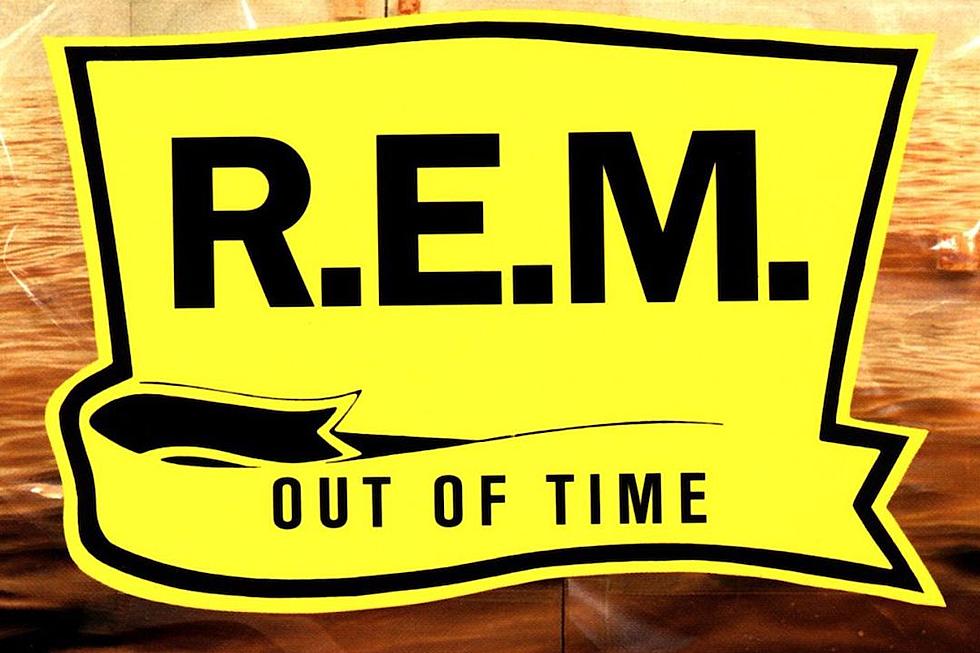35 Years Ago: The Jam Gives Fans a Parting ‘Gift’
When the Jam finished recording their sixth album, The Gift, in the winter of 1982, none of the members knew the band would cease to exist by the end of the year. Although frontman Paul Weller has, in retrospect, recognized that the trio was “winding down,” at the time the singer-guitarist was merely trying to find a way to merge his increasing interest in funk and R&B with the Jam’s powerful sound.
What had begun as a British punk (or at least punk-adjacent) outfit in the mid-’70s had become a more mainstream rock outfit by the turn of the ’80s, integrated into the new wave. The Jam had tinkered with the mod revival and neo-psychedelia, but for The Gift, Weller began drawing inspiration from styles rooted even further in the past.
“We got into soul again,” Weller told Uncut in 1998. “We started backtracking. I was into soul as a kid. I was on a big learning curve.”
The band’s primary songwriter was particularly inspired by ’60s R&B: Stax/Volt singles, James Brown chestnuts and Motown compilations. Bruce Foxton funked up his Rickenbacker bass (“Circus”). Horn sections blurted in the background (“Precious”). The backbeat from the Supremes' “You Can’t Hurry Love” was re-purposed (“Town Called Malice”).
Weller would more fully explore soul and jazz in his next band, the Style Council, but for now he was exploring black American music within the confines of a power trio.
“The influence of soul music pointed in the direction of where I was going to go after that,” Weller recalled to the NME in 2012, “but it was very much our sound, we were trying to expand it and do something else with the Jam sound.”
Although the Jam were drawing on old records to expand the band’s sonic playground, Weller was often being inspired by present political circumstances in his lyrics. As a result, The Gift is also a celebration of the working class in Margaret Thatcher-era Britain.
“I was thinking about the times we were living in,” Weller said about “Town Called Malice.” “It wasn’t the height of Thatcherism but she was well into her stride by that time. The country was being depleted and the working classes were being s--- on. It was a very desolate time. You couldn’t help but be touched by the politics of the time, you were either for or against it and I was reflecting what I saw around me.”
On “Just Who is the 5 O’Clock Hero?” Weller drew on his memories of his father to honor the folks who endure the working grind every day.
“My dad had been a hod carrier [bricklayer’s assistant] most of his life,” Weller told the Huffington Post. “It was tough work. He’d come home looking like he’d been sandblasted, covered in cement. I liked the irony of that. But he always had a smile on his face. You could hear him arriving home, whistling down the funny little alleyway that ran beside our funny little house in Woking. He was the ‘5 O’Clock Hero’. He made the money and fed and clothed us.”
Whether it was the political statements, the Jam’s new soul-rock sound or just the irresistible catchiness of “Town Called Malice,” The Gift became the trio’s first U.K. No. 1 LP after it was released on March 12, 1982. The double-a-side of “Malice” and “Precious” became a massive hit, debuting at No. 1 in Britain and becoming the group’s sole chart success in North America.
Despite the Jam’s increasing success, Weller was feeling artistically constricted by the band. In the summer of ’82, he made the decision to break up the band following a farewell tour. The news was met with confusion from fans, bandmates Foxton and drummer Rick Buckler and even Weller’s own “5 O’Clock Hero.”
“My dad thought I was bonkers,” Weller remembered. “Rick was quite philosophical about it. But Bruce was devastated. … But if you look at the photos of the final gigs, you can see us smiling, all three of us. A load had been lifted. I didn’t shed a tear at the final gig. I felt a sense of relief. I was 24. My life was just starting.”
The Jam Albums Ranked in Order of Awesomeness
More From Diffuser.fm









